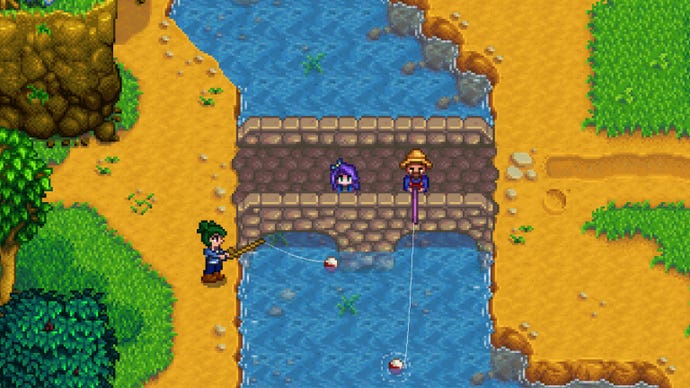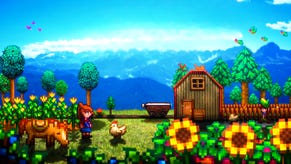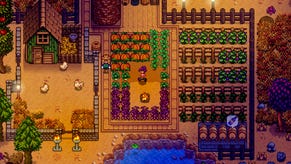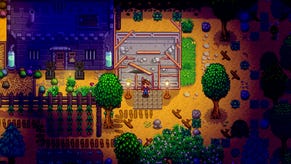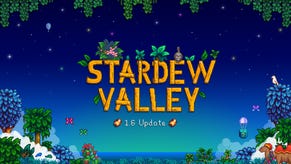Stardew Valley has spawned a genre that offers residence and routine to a lost generation
Dante Knoxx is a game developer, living the indie dream. He’s also 34, and has the credit rating of a “homeless ghost”.
“Getting a house or a flat in this day and age in the UK is next to impossible if you get turned down for a mortgage, or your income doesn’t allow for you to rent a property comfortably month by month,” he says. “You're going to be looking at either being part of a house-share or living back home with your parents.”
It’s this crippling reality that informs the fantasy of Willowbrooke Post, Knoxx’s game inspired in part by the hundreds of hours he’s spent in Stardew Valley. Like Stardew Valley and Harvest Moon before it, Willowbrooke Post finds you inheriting a family business, leaving city life behind, and joining a community where everyone knows your name. While some of us escape to realms of dragons and sorcery, a growing subgenre serves players desperate simply for a break from modern life.
“Modern life can be both incredibly busy and lonely at the same time,” says Zhi Xu, director of My Time At Portia. In Portia, you travel by boat to a Ghibli-like idyll where time seems to have stopped progressing entirely, and the local town is filled with potential friends who always have time to stop and chat.
“We just hope people who play our game can have a truly relaxing experience and ease any nerves,” Xu says. That’s why the Chinese developer gave the game its unusual title - the team wants you to remember ‘your time’ in Portia - to carry it back with you into the sometimes overwhelming crush of contemporary existence, like a reassuring pendant.
Each of these games venerate a different type of ‘simple’ living. In Stardew Valley you take over the running of a farm, in Portia a workshop, and in Willowbrooke a post office. But they all share a throughline: a life with fewer uncertainties, more time with your thoughts, and the satisfaction of working with your hands.
“I’ve lived in a few towns that could be considered quaint in the UK,” Knoxx says. “They were very small, very intimate, and had this overbearing sense of community, where everyone knew everybody else and what was going on in their lives. Those memories as a child were a strong inspiration when it came to setting Willowbrooke where it is.”
It would be naive to suggest that rural communities are insulated from the modern world - one that, in the UK at least, has devastated the local industries that once built towns and villages. What’s more, there can be a loneliness to growing up in places where opportunities are few and identities unsupported. With that in mind, it’s fascinating to see newer games in this subgenre embrace the cracks in the soil.
For Knoxx, the fantasy of Willowbrooke Post extends to capturing the passive aggression inherent in rural Britain; a world where busybodies thrive and that neighbour you can’t stand can never entirely be avoided. One where you might be inclined to read private mail, or mess with the address on the parcel of a customer you don't really like.
“This is a village of a few hundred people that all love and hate each other in equal measure,” Knoxx says. “I’m more about being nosy and interfering in people’s lives directly, as opposed to being a hermit and letting the world do its own thing around you.”
Nevertheless, sit in Willowbrook Post Office for long enough and you’ll notice the motes of dust dance in the morning sun; hear the floorboards creak and the church bell ring in the distance.
Solace sits at the heart of these games, and a sense of small-world ownership mostly unavailable to a generation of gamers. Each offers a home wholly yours, where the fruits of your hard work are returned to you. It’s curious to note that there’s something universal about this fantasy: Harvest Moon came from Japan, Stardew Valley from the US, Willowbrooke from the UK, and Portia from China.
“Everyone loves the idea of being able to build and create something for themselves, and we all want to feel that sense of belonging to a community,” Xu says.
“I think that’s very human, to get satisfaction from seeing progression from very little,” Knoxx adds. “Away from all that hustle and bustle that can kind of drown out the identity we seek to embrace.”
Ultimately, the hope is that these games won’t operate as pure escapism, but build confidence for players to take back to their own, more complex routines.
“Being able to pay bills within a virtual environment and maintain a healthy bank balance through wise investments shouldn't remind you that you're not particularly doing this in real life right now,” Knoxx says. “But instead mentally reinforce to you that you’ll be capable when the time comes.”
“What we want to tell players is that to achieve any success, you’ll have to face problems bravely in a positive way and work hard with your bare hands,” Xu says. “We’ve had a few people say that the game has helped them to relax and deal with their real-life anxiety. We’re so happy that our world has made them more positive in their daily lives.”
